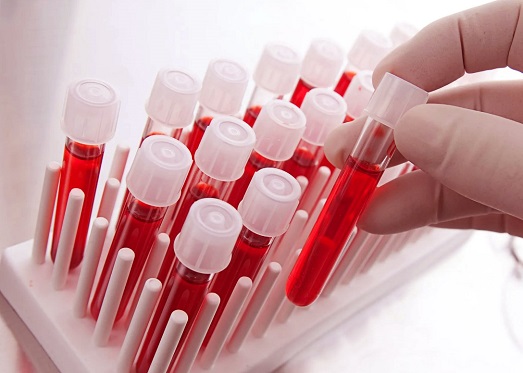Nikhil Prasad Fact checked by:Thailand Medical News Team Dec 03, 2024 4 months, 3 weeks, 1 day, 13 hours, 13 minutes ago
Medical News: Researchers from the Second Affiliated Hospital of Anhui Medical University, Hefei, China, and Bozhou People's Hospital have uncovered an important finding regarding COVID-19. Their study highlights transgelin, a protein previously linked to various diseases, as a potential biomarker to predict the severity and prognosis of COVID-19. This
Medical News report explores how their work sheds light on the importance of transgelin in understanding and managing this global health crisis.
 Transgelin Emerging as a Key Biomarker for COVID-19 Severity
Transgelin and Its Connection to COVID-19
Transgelin Emerging as a Key Biomarker for COVID-19 Severity
Transgelin and Its Connection to COVID-19
Transgelin is part of a protein family involved in cellular functions like muscle differentiation and structural stability. In the context of COVID-19, researchers sought to determine whether its levels in blood could provide insights into the disease's progression. To test this, they analyzed blood samples from 317 COVID-19 patients across various severity levels. Their findings showed that transgelin levels were significantly higher in patients with severe symptoms.
This study reveals that transgelin levels in hospitalized patients could predict outcomes like ICU admissions and the need for ventilatory support. Importantly, the study also noted that transgelin levels dropped during recovery, suggesting its potential as a marker for both disease severity and treatment efficacy.
Key Findings of the Study
The team measured serum transgelin levels using advanced enzyme-linked immunosorbent assays (ELISA). Their analyses revealed several important observations:
-Severity Correlation: Higher transgelin levels were directly linked to worse outcomes, such as ICU admission, mechanical ventilation, and increased mortality risk.
-Predictive Value: Transgelin levels on admission rivaled established severity scores like SMART-COP and CURB-65 in predicting critical outcomes. For example, a cutoff value of 0.95 ng/mL provided 90.2% sensitivity in identifying critical cases.
-Improvement Tracking: Patients showed lower transgelin levels during their recovery, suggesting its potential as a marker for monitoring treatment effectiveness.
The study also examined correlations between transgelin and clinical parameters. Elevated transgelin levels were associated with increased inflammatory markers like IL-6 and C-reactive protein, linking it to systemic inflammation, a key feature of severe COVID-19.
What Makes Transgelin Significant
One compelling aspect of transgelin as a biomarker is its accessibility and simplicity in clinical settings. Blood tests for transgelin are less complex and time-consuming compared to some imaging or advanced scoring systems. Moreover, its ability to predict adverse outcomes early in hospitalization could guide interventions like ICU care or ventilatory support more effectively.
>
Implications for Clinical Practice
The findings suggest transgelin could play a critical role in COVID-19 management. Clinicians could use it to:
-Stratify Risk: Identify high-risk patients who may need aggressive monitoring or treatment.
-Guide Interventions: Tailor therapies based on predicted outcomes to improve survival rates.
-Monitor Recovery: Track declining levels during recovery as a sign of treatment success.
Study Limitations and Future Directions
While promising, the study also notes limitations. It focused on serum levels, leaving room for future research on transgelin’s expression in lung tissues or bronchoalveolar fluid. The team also emphasized the need for larger sample sizes and animal studies to understand transgelin’s biological role in COVID-19 progression.
Conclusion
The study underscores the potential of transgelin as a dual-purpose biomarker for assessing both the severity and prognosis of COVID-19. Its association with inflammation and poor outcomes highlights the protein’s relevance in the disease’s pathophysiology. By integrating transgelin testing into COVID-19 care protocols, clinicians could significantly enhance patient outcomes. For patients with elevated transgelin levels, early interventions like respiratory support could prevent complications and improve survival chances.
The study findings were published in the peer-reviewed journal: Frontiers in Immunology.
https://www.frontiersin.org/journals/immunology/articles/10.3389/fimmu.2024.1423182/full
For the latest COVID-19 News, keep on logging to Thailand
Medical News.
Read Also:
https://www.thailandmedical.news/news/lactate-to-albumin-ratio-a-new-prognostic-tool-in-severe-covid-19-cases
https://www.thailandmedical.news/news/potential-for-tim3-as-a-biomarker-in-covid-19-severity-and-long-covid-complications
https://www.thailandmedical.news/news/hungarian-scientists-identify-novel-biomarker-of-mitochondrial-dysfunction-in-long-covid
https://www.thailandmedical.news/news/club-cell-secretory-protein-16-as-a-biomarker-for-predicting-severity-of-covid-19-and-h1n1
https://www.thailandmedical.news/news/covid-19-causes-blood-dna-methylation,-a-potential-biomarker-for-long-covid-severity
https://www.thailandmedical.news/news/hyaluronic-acid-as-a-key-biomarker-for-covid-19-mortality
